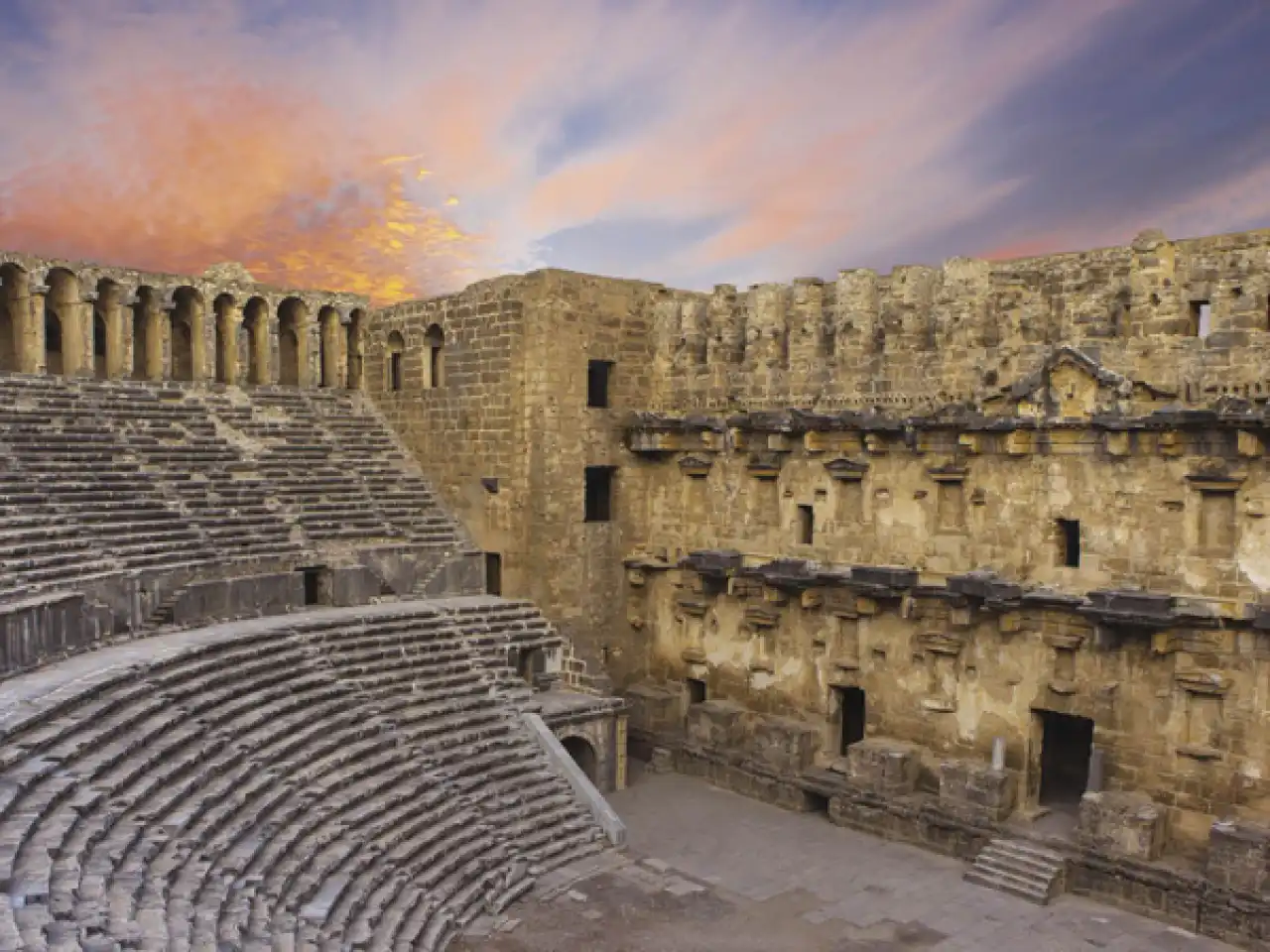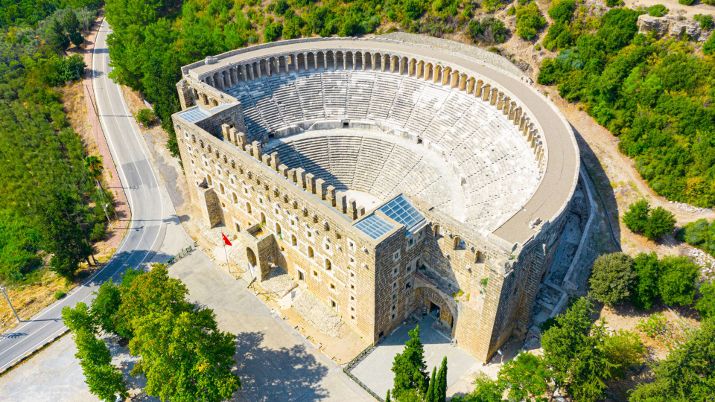The Roman Theatre of Aspendos in Antalya, Turkey, is a stunning 2nd-century AD architectural achievement that exemplifies the precision and artistry of Roman engineering. Built during the reign of Emperor Marcus Aurelius and designed by Zeno of Aspendos, a Greek architect from the region, this theatre remains one of the best-preserved examples of ancient Roman architecture.
Architectural Excellence and Ingenious Acoustics
Designed to accommodate up to 12,000 spectators, the theatre showcases advanced engineering skills. Its semi-circular seating layout, known as the cavea, allows all seats a clear view of the stage. The scaenae frons (stage building) is richly adorned with columns and reliefs that blend Greek and Roman influences. Zeno’s design incorporates vaulted corridors and stairways, enhancing both accessibility and structural integrity.

One of the theatre’s most celebrated features is its acoustic design, allowing even the softest sounds from the stage to reach the highest tiers without amplification. This achievement reflects a sophisticated understanding of sound dynamics, with the theatre’s walls and stage designed to act as a natural amplifier.
Cultural Significance and Legacy
The Aspendos Theatre wasn’t merely a venue for performances; it was a hub of social and civic life. Today, it continues to serve this purpose, hosting the Aspendos International Opera and Ballet Festival annually, linking ancient artistry to contemporary culture. This enduring function cements the theatre’s role as a timeless cultural landmark, bridging the ancient and modern worlds.


